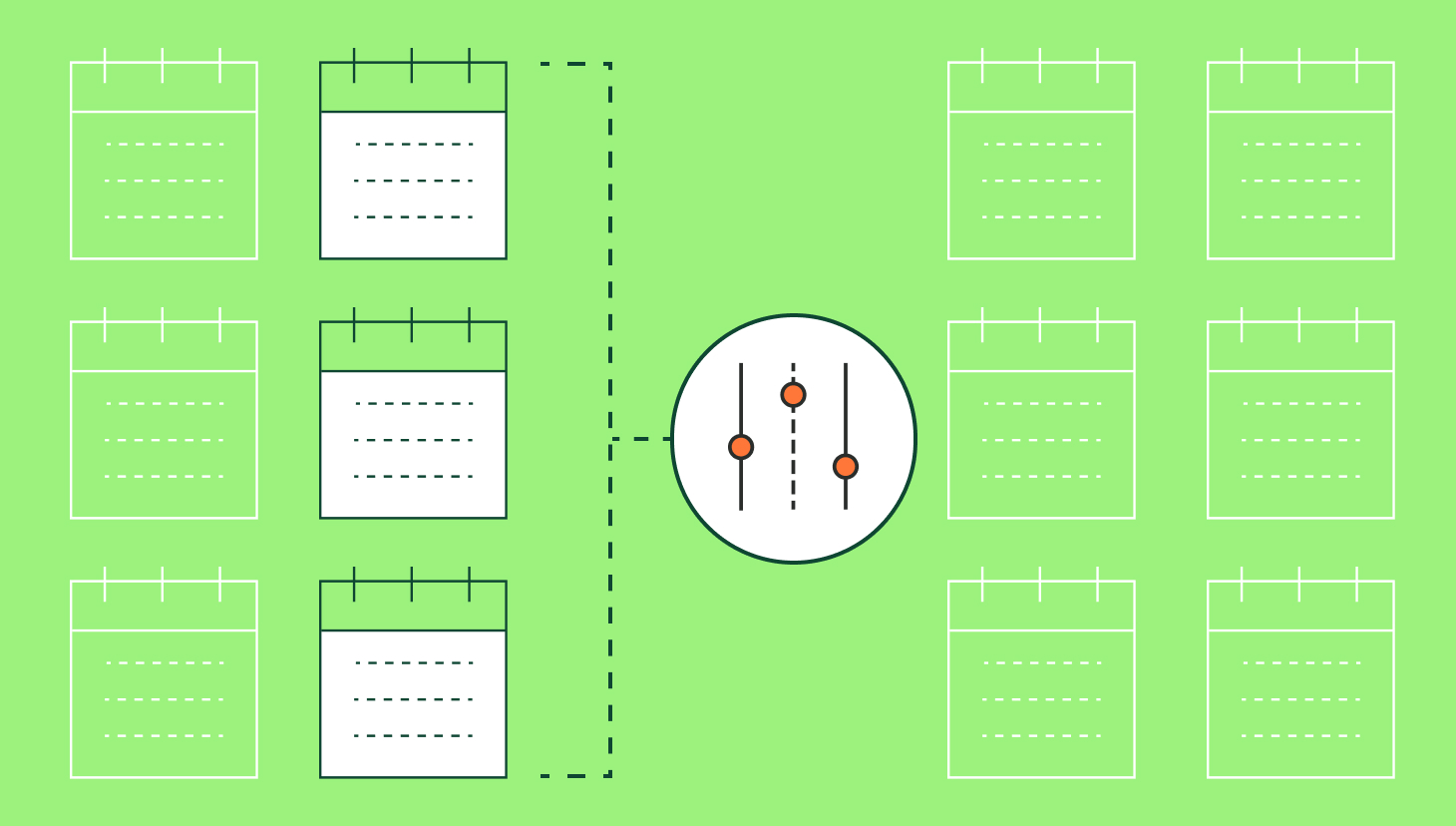Software as a service, better known as SaaS, is one of the fasting growing sectors in technology. Thanks to a sharp increase in the number of people working remotely, cloud-based software is becoming a crucial part of professional success. As a SaaS salesperson, it’s your job to help prospects understand why SaaS matters and what it can do for them. That’s how you earn your SaaS commission. But how do you know if you have the skills to succeed in SaaS sales?
Nothing can determine 100% if someone will be good in this area of sales. However, there are some traits that most of the top SaaS salespeople we know have. And surprise — experience isn’t one of them.
Integrity
Here are your first words of wisdom for today: Churn is the enemy of B2B sales. Selling software as a service is selling an experience. You need to be authoritative, trustworthy and confident. Without these three attributes, you’ll lose customers because they’ve lost faith in you. When customers cancel their subscriptions or opt-out of renewal, that’s churn.
Salespeople who exhibit integrity are truthful and honest about what their tool does. There’s no fibbing about functionality or promising features that don’t exist. That approach doesn’t work because time eventually proves those tales to be false, and the customer knows you’ve misled them.
Sell leads on what a tool really does and how it speaks to their needs. Make truth and integrity your foundation, and the deals will follow.
Curiosity about B2B SaaS sales skills and beyond
Knowledge is power, but no one wraps up sales education and hand delivers it. It’s easier to make a sale if you know about your business and customers. But you have to put forth the effort to gather and take advantage of that information.
Podcasts and books
Load up your smartphone with sales podcasts and audiobooks about B2B sales. Play it anytime you’re stuck in traffic or on the treadmill at the gym. Even prepping dinner or folding laundry at home is an opportunity to soak up some more info.
Know who you’re working for
Learn about the history of your company, its mission statement and its vision for the future. Understanding these things helps to position yourself and your division as a department consumers can trust. Remember integrity? It comes into play again here.
Learn your SaaS product inside and out
You need to know how your SaaS solution works. That means understanding the specs and using the software repeatedly until you can demo like a pro.
If you come off as confused or uncertain, how can the customer have any confidence the software will work for them?
Get to know your audience
At the end of the day, you’re not selling software — you’re selling a solution. Most prospects, B2B or B2C, aren’t looking for a specific item but rather something that addresses their pain points. Whether they need help managing orders, scheduling staff or facilitating team projects, you can frame your product as their answer.
At the end of the day, the more you learn, the better you are.
Grit
In sales, you’re always going to hear “no” a lot more than yes. From cold phone calls to demos, you’ll put a ton of work into warming up leads and attempting to close deals. Too often, your efforts fall flat. That’s sales. Honing your skills may boost your close percentage, but if you don’t hear no, you’re not taking enough risk. It really is as simple as that.
The key is to keep pushing through. Don’t take losses personally. Use every no as an opportunity to examine what you could’ve done differently. Notice we say “differently” and not “better.” Hearing no isn’t a failure.
There are a plethora of ways to approach SaaS sales. Maybe you used the wrong approach. Next time, you’ll know how to tweak your presentation when you encounter a similar audience or pain point. Or, maybe it just wasn’t a good fit. Not every product works for every prospect. Being an ethical salesperson means realizing that sometimes it’s just not going to happen and you need to stop pushing.
Selflessness
Speaking of letting go, a good salesperson learns to put everyone else first. The customer is obviously paramount because without them, we have nothing. But you also need to be a team player. Work as a unit to achieve widespread customer access. Accept critiques in the spirit in which it is intended. Offer positive reinforcement to your coworkers or employees to help recharge their batteries in between pitches.
Many industries work off the idea that a rising tide lifts all boats, but this premise is often forgotten in sales. It’s not surprising. So many sales metrics focus on individual achievement.
How:
- Much is Salesperson A selling?
- Many leads are they bringing in?
- Long is their sales cycle?
- Many demos are they scheduling?
A great salesperson remembers that everyone’s numbers matter, not just their own. Sales managers can help by reframing the importance of teamwork and rewarding employees who look out for more than just themselves.
Improvement focused
There is no “done” in sales. Want a career in which you can settle back in your chair, put your feet up and admire your accomplishments? Look elsewhere. Great salespeople are focused on improvement, sometimes to the point of obsession. That’s where gamification comes into play as a fantastic motivator. Because salespeople want to get better and achieve more, they’re eager for inspiration and specific targets to boost their numbers.
Even a 1% improvement each day leads to meteoric growth.
Competitive
And here we have one of the most recognizable attributes of a stellar salesperson — competitiveness. They want to outpace their own numbers and everyone else’s. The trick is to enjoy competition in a healthy way and not to a negative extent. “Winning at all costs” isn’t really winning. Hurting others to score a deal isn’t a smart way to go, either.
A positive competitive nature makes sales fun. You get to enjoy the camaraderie that comes with challenging your office buddies with who can set the most appointments for that week. You get to see the glint in your employees’ eyes when you set a sales quota for your SaaS reps. These goals fuel hard work and progress, but only if they’re done with positivity and respect.
Organized
Do you know what’s truly awful? Knowing you have a lead on the hook and realizing you can’t close because you misplaced a vital piece of information. Or maybe it’s time for follow-up calls with your existing clients, and your CRM is a mess. Organization isn’t some finicky undertaking that wastes time. It actually saves time by ensuring all the data you need is positioned where you can find it.
Keep your desk and digital workspace organized, and it’ll be easier to organize yourself, too. Set a schedule that helps you remember when to send those “touching base” emails or know when a client’s subscription is up for renewal. Your life will be easier, your team will function better and you’ll serve your clients sufficiently. Win-win-win!
Coachable
Coachable salespeople can take feedback well. They don’t push back when encouraged to try a new approach. This is important because there are so many different ways to nurture leads, entertain prospects and close a deal. You cannot choose one method and expect it to work in every situation.
Many of the characteristics above work best if you’re open to mentorship. If you’re competitive, expert coaching can help boost your numbers and come out on top of department challenges. When you’re curious, your coach can teach you about tried-and-true sales techniques as well as innovative approaches that could change your entire client-facing dynamic. If you want to be more organized, you can learn from your coach how they run their calendar or schedule follow-up calls.
Be open to help, and try recommendations even if they make you feel a little uncomfortable. You may be surprised.
Creative
Lastly, a strong salesperson embraces a creative mindset. They’re willing to try new things and even run experiments to see what helps them sell the most and convert leads faster. This might mean doing A/B testing, which involves taking two different approaches to selling new software and seeing which hits home.
If you deal with tons of emails, try toying with subject lines or personalization. Or, you might create different scripts, depending on which channels your leads came from, such as social media, direct mail or PPC ads.
Being creative in sales is like learning to paint with color when you’ve been stuck with a purely black-and-white palette for years. It’s a gift, and it’s one that can benefit the entire team.
A big part of personal growth in sales is understanding where you are so you can decide on new goals. QuotaPath can help. A unique combination of accurate commission tracking, easy compensation management and a personal sales journal puts improvement at your fingertips. For more information, sign up for a free account today.



